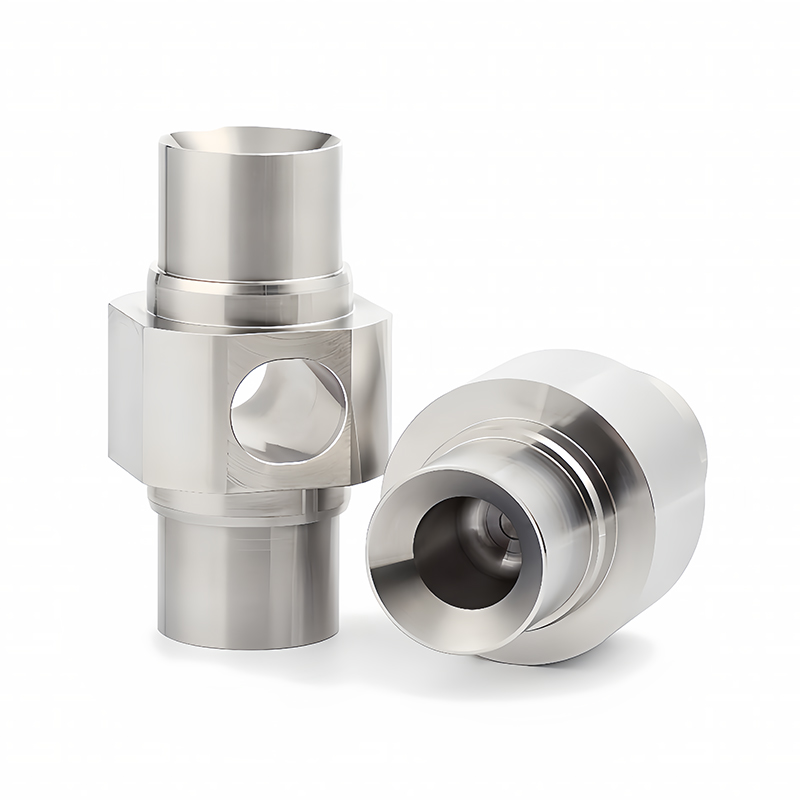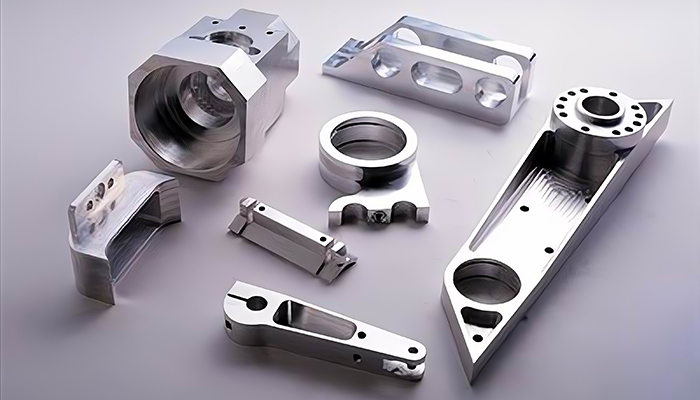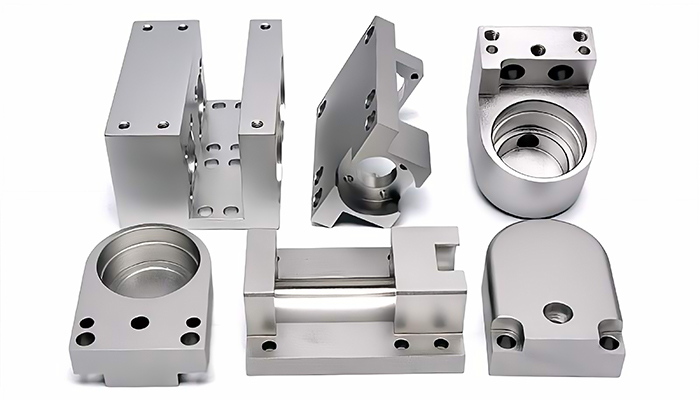
Products
CNC Machining in Aluminum
CNC Machining In Alloy
Alloy steels, which consist of additional alloying elements along with carbon, exhibit enhanced hardness, toughness, fatigue resistance, and wear resistance.
Alloys materials are commonly used in CNC machining processes.
CNC machining enables the production of state-of-the-art components using alloy steel materials, exhibiting superior mechanical properties, precise measurements and reliable results. Machining process options include 3-axis and 5-axis CNC milling for increased manufacturing versatility and flexibility.

Application
CNC machining is a reliable process for producing high-quality components from metal and plastic materials. It ensures excellent mechanical properties, precise measurements and consistent results. In addition, we also provide flexible 3-axis and 5-axis CNC milling to meet different manufacturing needs.
Advantages
The superior mechanical properties of CNC machining guarantee the durability and quality of the parts it produces. It offers impressive accuracy and repeatability, ensuring precise and consistent results throughout the manufacturing process.
Disadvantages
Compared to 3D printing, CNC machining places more constraints on the achievable geometric complexity, ultimately reducing the range of available design possibilities.
Price
$$$$$
Lead Time
< 2 days
Wall Thickness
0.75mm
Tolerances
±0.125mm (±0.005″)
Max part size
200 x 80 x 100 cm
What are alloys
Alloys are metallic materials that are made by combining two or more elements, with at least one of them being a metal. The combination of different elements imparts specific properties to the alloy that are different from those of the individual elements.

Types of alloys:
There are several types of alloys based on the elements they contain and their properties. Some common types include:
- Steel: Steel is an alloy of iron and carbon, with the carbon content typically ranging from 0.2% to 2.1%. It is known for its high strength, durability, and versatility. Steel can also be alloyed with other elements to enhance specific properties.
- Stainless steel: Stainless steel is an alloy of iron, chromium, and sometimes other elements like nickel or molybdenum. It is highly corrosion-resistant, making it suitable for applications where resistance to rust and staining is required.
- Aluminum alloys: Aluminum alloys are made by combining aluminum with other elements such as copper, zinc, magnesium, or silicon. These alloys offer a good balance of strength, lightweight properties, and corrosion resistance. They are widely used in industries such as aerospace, automotive, and construction.
- Titanium alloys: Titanium alloys are made by combining titanium with other elements such as aluminum, vanadium, or iron. They are known for their high strength-to-weight ratio, excellent corrosion resistance, and biocompatibility. Titanium alloys are commonly used in aerospace, medical, and chemical industries.

Properties and advantages:
Alloys often exhibit improved properties compared to pure metals. These properties can include increased strength, hardness, corrosion resistance, heat resistance, and electrical conductivity. Alloys can also be tailored to specific applications by adjusting the composition and processing techniques.
Applications:
Alloys have a wide range of applications across various industries. For example, steel is used in construction, automotive, and manufacturing sectors. Stainless steel is commonly found in kitchen appliances, medical instruments, and chemical processing equipment. Aluminum alloys are used in aircraft, automobiles, and packaging. Titanium alloys find applications in aerospace, medical implants, and sports equipment.
Manufacturing processes:
Alloys can be produced through various methods, including casting, forging, extrusion, and powder metallurgy. The choice of manufacturing process depends on the specific alloy and the desired properties.




